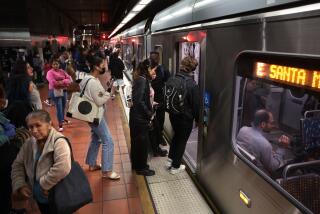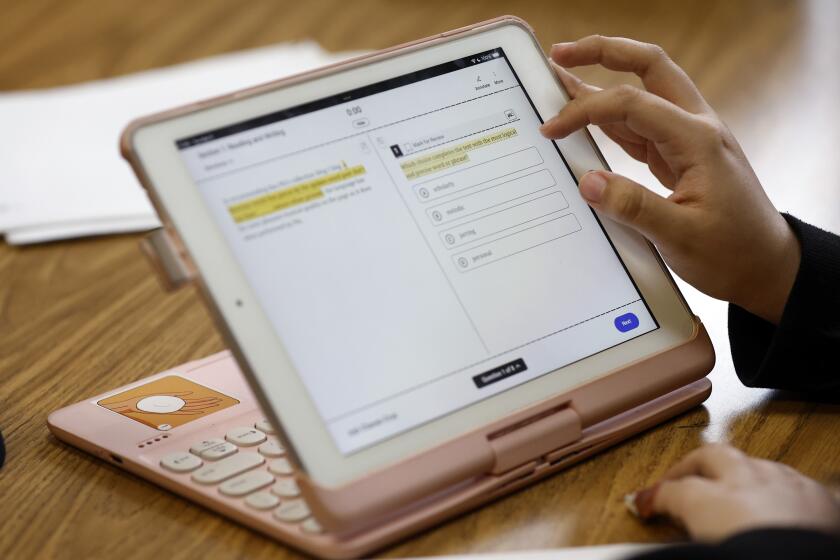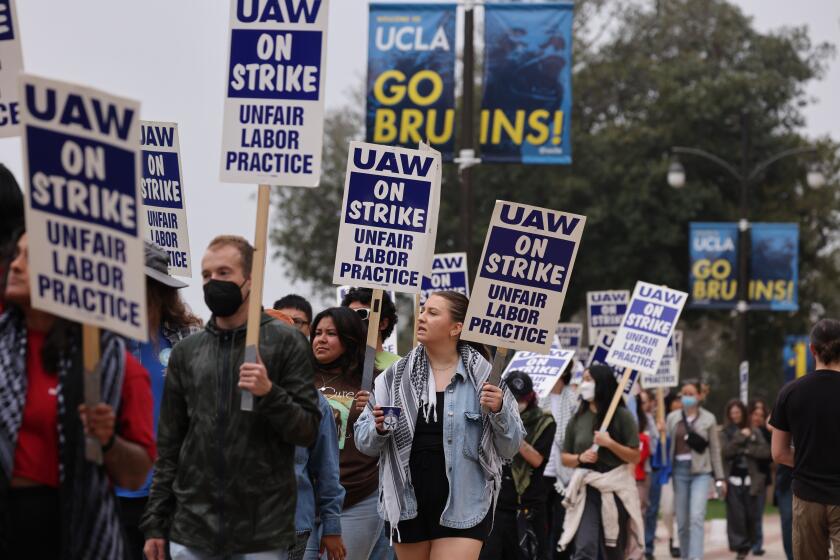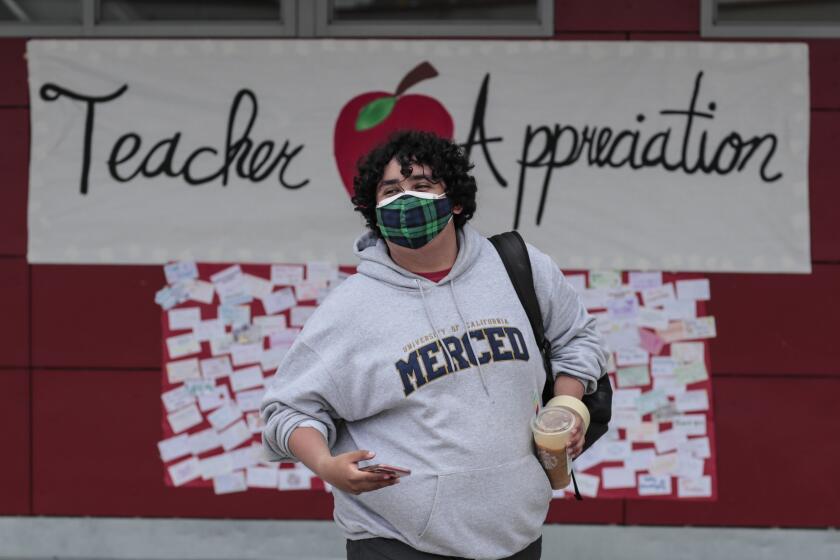School Work Benefits Both Generations
Many volunteer organizations report that seniors are active in volunteer activities throughout Los Angeles and the Valley. But, unlike Frances Tourkolias and Lulu Neill, most choose to give their time at senior-citizens centers, elementary and secondary schools, high schools, health-care or special-education settings.
Joan Graham, project leader of Dedicated Older Volunteers in Educational Services (DOVES) in the Los Angeles Unified School District, said that, of the 500 senior volunteers at about 600 schools, only 150 work at San Fernando Valley preschools.
Alethea Ludowitz, director of the Van Nuys chapter of the federally funded Retired Senior Volunteer Program (RSVP), reported that only 12 of the chapter’s volunteers work in preschools.
One volunteer organization spokesman speculated that the reason for the smaller number of seniors in preschools may be that the volunteers feel that younger children are too active for them. Other seniors prefer working with older adults in order to develop friendships.
Positive Effect on Children
Many educators believe that the presence of senior citizens in schools can have a positive effect on young children.
“When parents leave a child at a preschool, the first thing the child is apt to feel is insecurity at not being sure they will return,” said RSVP’s Ludowitz. “When seniors fill the surrogate role, it is comforting and reassuring.” It also can fill a void for the seniors, she said, “especially since many seniors aren’t living in the same city as their grandchildren.”
Studies also show that the seniors’ involvement in schools may affect academic performance. For five years, the Kindergarten Intervention Program (KIP) of the Los Angeles Unified School District has sought to provide volunteer support services to young children experiencing difficulty adjusting to school.
Alison Hutchings, director of KIP, said many problems experienced by older children can be traced to their earliest school experiences.
“When children are in their first year in school, they’re faced with so many new social and academic tasks. They’re vulnerable then,” Hutchings observed.
First Impressions Vital
“By bringing in volunteers to help children who are having trouble with shyness, aggression, poor concentration or home problems, the chances are better that their first impressions of school will be positive,” she continued. “If they have a good feeling, they’re more likely to look forward to the next 15 years.”
Out of 65 KIP volunteers in the Valley, only six are seniors. The rest are college students.
“One problem with college kids is that they come and go. The seniors, on the other hand, tend to become part of the classroom family, and the kids get genuine, long-term support.”
More to Read
Start your day right
Sign up for Essential California for news, features and recommendations from the L.A. Times and beyond in your inbox six days a week.
You may occasionally receive promotional content from the Los Angeles Times.






